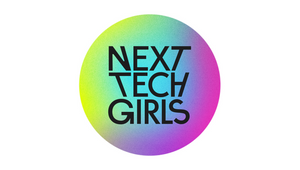
Why Spotify is Leading the Way in Personalisation

Sunday night and scrolling through Netflix menus, I have often muttered (yelled) "Why isn't there a button that shows only the good films?".
It's been ten years since
Netflix announced the Netflix Prize, a $1m
competition encouraging geeks to improve upon Netflix's existing
recommendations algorithm, yet I'm still being recommended Codename: The Cleaner staring Cedric The
Entertainer.
Personalisation is of
course, old hat. We've all laughed at our odd Amazon recommendations,
and by now we should be, according to Gartner's trusty Hype Cycle, firmly
upwards on the utopian Slope of Enlightenment. But if you're using Netflix, BBC
iPlayer, and especially Instagram's Explore section, it doesn't feel like we're
close.
Have
Spotify cracked it?
Last week Spotify
announced the numbers behind their Discover Weekly service.
Spotify have around 100m users and 40m of these use the Discover Weekly
playlists, with over 20m streaming more than 10 tracks, and saving at least
more than one song from the recommended playlist to their own playlists. It's
also helping people uncover little-known artists, as Spotify explain, "there are over 8,000 artists for whom more than half of their listeners in
the last month were from Discover Weekly alone". All this despite Spotify
not pushing the feature. People seem to like their personalised playlists, what
can we learn about it?
How can
brands think differently about personalisation?
Consider Context
Spotify's UK data revealed that
streaming of the Discover Playlists peaked between 8:00 and 9:00. A time when
we may be too brain dead even to select our own songs. While personalisation may
not be useful all of the time, there may be particular times, places and dates
where it may become more useful for your audience. Should my banking app look
different at the troublesome end of the month vs the hazy days at the
beginning? Retailers may be wise to turn off any personalisation features in
the build up to Christmas.
You don't always need to
make it a new feature
The Discover Weekly
functionality seems largely invisible. It just appears in your playlists.
There's no special buttons to press, or ways to teach it the algorithm and this
is part of its strength. I’m sure many fashion retailers are considering how to
incorporate Thread’s personalised shopper experience into
their product, but for retailers, this may be overkill. We don't need a clunky
interface to train the system or another email in our inboxes.
If part of Discover
Weekly's success was its integration into an existing interface, it will
be very interesting to see how people react to recommendations inside Chatbots.
Foursquare's MarsBot may be the
first of many to take this approach.
Find a way to give
algorithmically-created content extra value
We tend to be a bit
dismissive of computer-generated content. Spotify have cleverly side-stepped
this by updating the Discover playlists only weekly, and then deleting them.
This gives them a sense of urgency and additional value in the eyes of the
user. Conversely, Google take a very rational approach to their
recommendations. In the Play Store, Google will recommend that I download PowerPoint because it’s popular with users of Microsoft OneNote. In this
example, the curated list of ‘Productivity Apps’ seems like a more valuable
starting point. How will you frame your personalised elements?
Freedom from choice
Spotify has a large
library of music. But despite the name, the popularity of the Discover Weekly
playlist isn't about discovering new artists, it's about simplifying choice.
This simple shortcut means that people don't really need to think about what to
put on, and this helps build a habit. Back to my Netflix recommendations. The
row of ‘Recommended for you’ films, seems like it adds to the never-ending
choice rather than simplifying things. This is something that Sainsbury’s will
need to think carefully about when on-boarding Argos. They’ll have an enviable
selection, but how do they highlight items in a way that doesn’t overload
people?
Is your personalisation
better served through a partner?
Not all of Spotify's
personalised recommendations take place within their platform. Last year, they partnered with Nike's Running
app to generate playlists based on your running pace. Could a brand like the National Trust deliver their walks and
places of interests through someone like CityMapper or Google Maps?















